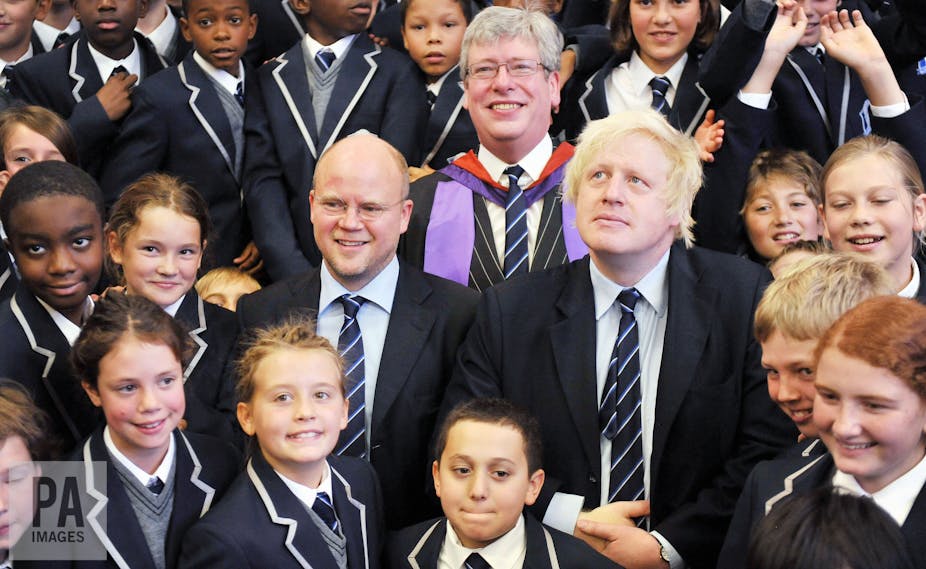The journalist and commentator Toby Young resigned from the board of the university regulator Office for Students (OfS) after he came under fire for a series of offensive comments. Some of his past statements about working-class students, disabled people, women or inclusivity were perceived by many to be exceedingly inflammatory, making him unfit for public office.
A string of misogynistic remarks he made on Twitter was particularly controversial. Apparently, Young deleted the majority of his tweets once his appointment to the OfS was confirmed, but the damage had already been done.
This is not the first time a candidate for public office has stumbled over insensitive or offensive tweets. In 2016 several officials created “Twitterstorms” which at times effectively ended their careers. Among these was Labour MP Jared O’ Mara, who was suspended by his party after it was discovered he had posted abusive messages online. US senator Bill Kintner stepped down after retweeting a message mocking a Women’s March.
Even seemingly innocuous photographs can be cause for concern. The Canadian ambassador to Indonesia was reprimanded for tweeting pictures of the Burmese coastline, with captions that praised the beaches as “perfect for snorkelling”. This contrasted starkly with the images of the humanitarian crisis unfolding in Burma.
Controversial remarks on social media clearly have the potential to derail careers. It does not matter whether they were made carelessly or not, in public or to a small circle of “friends”. And nor does it matter when they were made.
O’Mara posted his comments in 2004, and many of Young’s stirring statements on Twitter were made several years ago. Young has published tens of thousands of tweets – and perhaps has no recollection of some of his older tweets.
The pitfalls of social media, however, are not limited to highly visible individuals applying for high-profile jobs in the public or private sector. They can also have a strong impact on the career prospects of ordinary job applicants.
Companies screen social media profiles of job applicants and habitually reject candidates based on the outcomes of these checks. And it’s not just checks on job-related social media websites such as LinkedIn – Twitter, Instagram or Facebook are also scrutinised. Compromising pictures, offensive messages, membership of particular groups or biographical information which does not match with information provided by the candidate can all be a source of rejection.
Even the number of a candidate’s social media profiles can be a problem. For instance, some companies regard applicants with a certain number of profiles as “job hoppers” and exclude them from their pool of suitable candidates.
Social media screening has become so prevalent that many companies employ staff solely dedicated to this task. In theory, social media screening should be bound by a number of ethical and legal constraints, but in practice few restrictions apply.
Tracking applicant information on social media has never been more straightforward. It does not require particular skills – anybody can perform a Google search on a candidate. But some companies also employ increasingly sophisticated algorithms to screen social media profiles and filter applications. Commercial providers sell social media information to third parties and with the help of online tools such as the Wayback Machine, it is possible to retrieve information which has long been deleted. Many candidates, unaware of the impact of their social media activities, see their job applications rejected without ever knowing the actual reasons why.
Think before you share
So what are the implications? First, one should think very carefully about what to share on social media and with whom. Sensitive information does not only extend to one’s own social media profiles, but also to content posted by others. Also, take a moment to reflect on the potential implications of social media activities – not only for the present, but especially for the future.
What is innocuous or amusing now might be perceived as offensive and inappropriate later, or in a different context. Once the “send” button is clicked, content is virtually available forever, even if deleted within seconds. Always assume that everything which is shared on social media becomes public knowledge.
Being successful in today’s labour market requires a strong awareness of the implications of social media activities for career prospects. Even though the consequences of controversial social media activity may affect anybody, candidates for public office are subject to particular scrutiny from the media, political rivals or the public in general.
Higher standards of moral integrity apply to those in public office – and any compromising tweet or picture from the past will inevitably be unearthed. For aspiring office holders, these challenges can be difficult to reconcile with the need to be a public persona and to share as much information with the public as possible. It is in their own interest to keep digital tracks as clean as possible. Otherwise, as demonstrated by the case of Toby Young, one’s tenure in public office might be over before it has properly begun.

